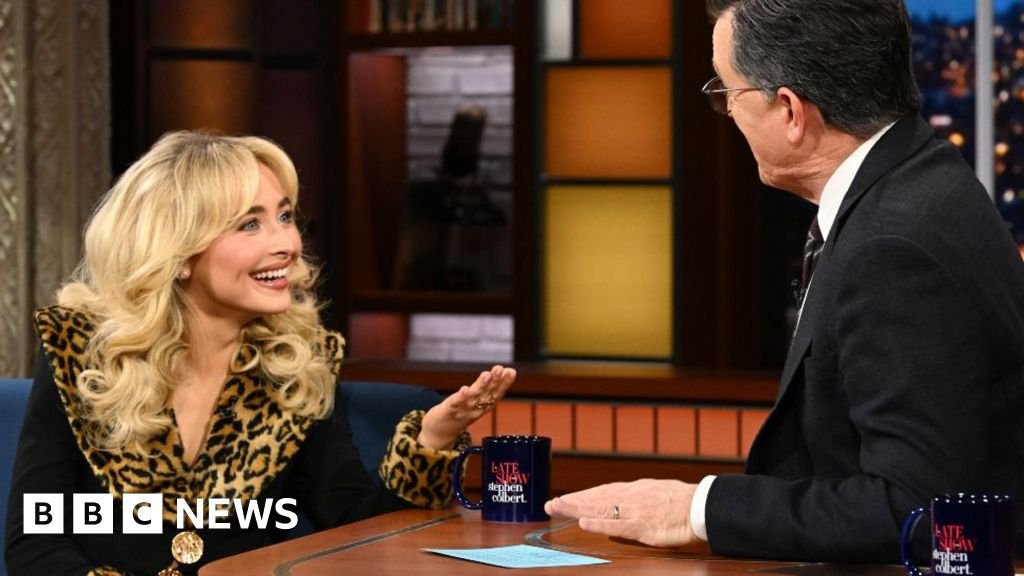Surprising Announcement: The End of The Late Show
In a shocking revelation, Stephen Colbert, the beloved host of "The Late Show," informed viewers that the program, which has been a staple of late-night television since 2015, will conclude in May 2026. This decision has nothing to do with a change in hosts; rather, the show is permanently retiring.
With the current trends in television, pundits speculate that this cancellation may not be an isolated case. Fans are left wondering if other late-night giants, such as Seth Meyers or the Jimmys—Fallon and Kimmel—might also face a similar fate.
TV critic Emma Bullimore shared her insights, highlighting that the late-night chat format has mainly flourished in the U.S., while other countries, including the UK, have admired it yet struggled to replicate its success. “Late-night shows are as integral to American television as soaps are to British TV,” she commented, acknowledging that the cancellation is unexpected, both in terms of its execution and the choice itself.
Viewer Reactions and Industry Insights
Many viewers expressed their astonishment, with comments indicating that even those who are less engaged with late-night programming find the show’s closure unsettling. One viewer remarked that "The Late Show" has become an institution in its own right, while another echoed concerns for the future of late-night media overall.
The traditional chat format faces challenges in today’s shifting media landscape, particularly due to new audience preferences. Frances Taylor, TV Previews Editor at Radio Times, noted that such shows often struggle to find their place in an era dominated by on-demand viewing. “These programs don’t lend themselves well to streaming or catch-up viewing due to their immediate topical nature,” she explained.
As the number of alternative publicity platforms increases, securing high-profile guests is becoming more challenging. Celebrities now frequently opt for platforms like YouTube or social media, where they can maintain a more laid-back image without facing tough interview questions.
Adaptation and Evolution
While traditional chat shows like Colbert’s have sought to adapt—evidenced by viral segments like James Corden’s "Carpool Karaoke"—the competition is fierce. Colbert boasts a solid following of 10 million YouTube subscribers, yet this number trails behind Kimmel’s 20 million and Fallon’s 32 million.
Historically, the landscape of U.S. chat shows has been cutthroat, bolstered by ad revenues that have since dwindled alongside traditional TV viewership. The pressures of maintaining high production costs contribute to a sense of uncertainty regarding the viability of the format.
As Colbert’s departure from late-night TV approaches, some have raised questions about potential political influences behind the decision. Colbert, an outspoken critic of former President Donald Trump, recently faced scrutiny in light of CBS’s settlement with Trump regarding the editing of an interview with Kamala Harris. This has prompted speculation from figures like Senator Adam Schiff, who asserts the public deserves transparency regarding any political motivations behind the show’s ending.
The Future of Late-Night TV
Colbert himself may explore new opportunities, potentially transitioning to streaming platforms or online formats. Shows like "Piers Morgan’s Uncensored" illustrate that a traditional TV program can successfully shift to digital. John Avlon, a media executive, emphasized Colbert’s brand strength, assuring that his loyal audience would follow him in whatever direction he chooses next.
In light of the challenges facing the late-night format, it remains paramount for hosts to evolve. David Letterman’s successful transition to Netflix serves as a testament that adaptation is possible even in a rapidly changing media landscape. And amid the pivot to new platforms, one avenue remains unexplored for Colbert—entering the podcast space, a realm where many celebrities now engage their fanbases.
Conclusion
The farewell of The Late Show marks not just the end of an era but also raises critical questions about the future of late-night television in a climate where audience tastes and viewing habits are in constant flux. As the landscape evolves, both audiences and hosts must navigate uncharted waters together—where will this journey lead next?

